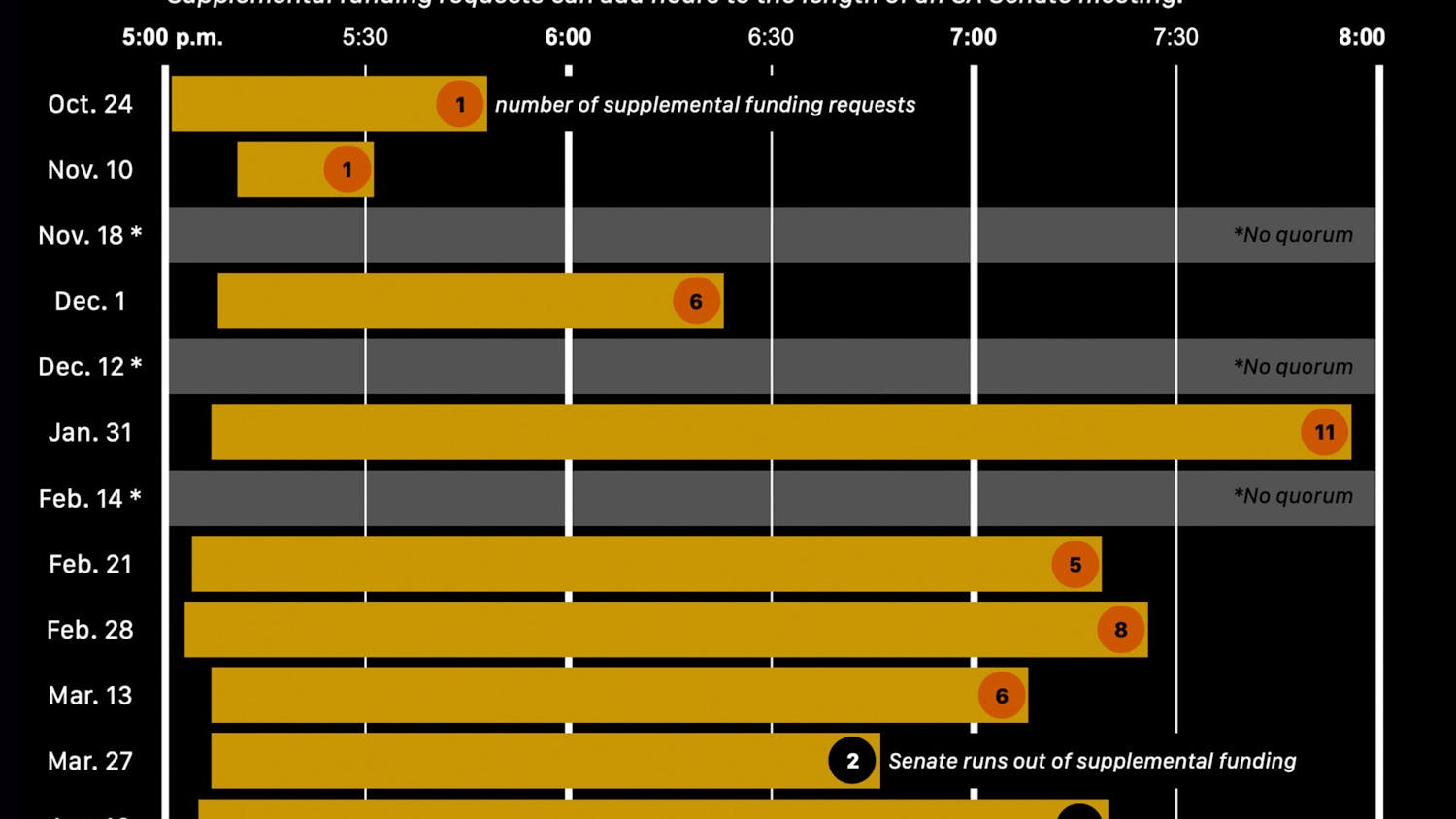Narcotic substance abuse is a concern of every parent raising a teenager. The consequences of drug abuse can be severe for people on the cusp of adulthood, preparing to enter "the real world." While fighting the drug problem is important to the health and safety of American students, the educational system must not circumvent constitutional safeguards or notions of common sense in its anti-drug efforts.
A case accepted by the Supreme Court Thursday casts a light upon the drug-testing policies of an Oklahoma school district. Between 1998 and 2000, Tecumseh, Okla. school officials randomly tested approximately 500 students for drug use. The tests were administered not to members of the school's athletic teams, a practice ruled constitutional by the high court in 1995, but to participants in its extracurricular programs, such as the chorus and academic teams. The 10th U.S. Circuit Court of Appeals ruled the district had no authority to conduct the tests because the school had few drug incidents; the district appealed. Only four of the 500 students tested positive for drug use - clearly not a drug epidemic. The court's previous rulings have stopped short of giving the green light for untargeted, blanket testing.
Whenever the court rules in favor of drug testing, it does so under the framework of preserving public health and safety. Customs agents who are charged with enforcing drug laws or carry weapons can be tested for illegal drug use. The same applies to railroad employees. In these cases, the court rightly recognizes the danger of giving drug addicts responsibility for public safety. Some companies mandate applicants pass drug exams before hiring a prospective employee. Drug testing is in the best interest of the company because its service deteriorates if the employee is unable to carry out his or her duties due to substance abuse.
Despite the exceptions, the Fourth Amendment right of the people "to be secure in their person, houses, papers, and effects" remains a bulwark against invasions of privacy. Grade school students, by virtue of their age, do not have the same rights as adults. Their age, however, does not exempt them from the protections against unwarranted searches and seizures guaranteed by the Constitution. Aside from violating constitutional protections, the Tecumseh policies target the wrong students.
Low efficacy and damaging behaviors are likely signs of drug abuse. Tecumseh focuses on students who participate in activities - precisely the group of students least likely to abuse drugs. It's difficult to imagine the Future Homemakers of America or the school debate team smoking crack in school bathrooms. A student smuggling alcohol onto a choir trip was cited as one of the greatest infractions at the school.
School officials are correct to be concerned about their students' health and safety. The quicker a drug addiction is identified, the sooner it can be treated. And targeting the proper students for testing - those frequently falling asleep in class, those often absent, those with repeated disciplinary problems - can save them from addiction and a life of misery. However, forcing all students, regardless of individualized suspicion, to undergo the invasive process of a drug test is inappropriate, unnecessary and constitutionally suspect. The words of the Supreme Court still ring true: one does not shed their constitutional rights at the schoolhouse door.




